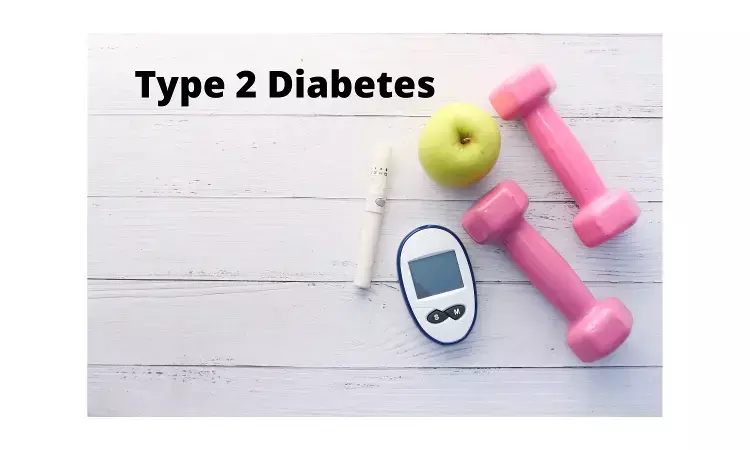- Home
- Medical news & Guidelines
- Anesthesiology
- Cardiology and CTVS
- Critical Care
- Dentistry
- Dermatology
- Diabetes and Endocrinology
- ENT
- Gastroenterology
- Medicine
- Nephrology
- Neurology
- Obstretics-Gynaecology
- Oncology
- Ophthalmology
- Orthopaedics
- Pediatrics-Neonatology
- Psychiatry
- Pulmonology
- Radiology
- Surgery
- Urology
- Laboratory Medicine
- Diet
- Nursing
- Paramedical
- Physiotherapy
- Health news
- Fact Check
- Bone Health Fact Check
- Brain Health Fact Check
- Cancer Related Fact Check
- Child Care Fact Check
- Dental and oral health fact check
- Diabetes and metabolic health fact check
- Diet and Nutrition Fact Check
- Eye and ENT Care Fact Check
- Fitness fact check
- Gut health fact check
- Heart health fact check
- Kidney health fact check
- Medical education fact check
- Men's health fact check
- Respiratory fact check
- Skin and hair care fact check
- Vaccine and Immunization fact check
- Women's health fact check
- AYUSH
- State News
- Andaman and Nicobar Islands
- Andhra Pradesh
- Arunachal Pradesh
- Assam
- Bihar
- Chandigarh
- Chattisgarh
- Dadra and Nagar Haveli
- Daman and Diu
- Delhi
- Goa
- Gujarat
- Haryana
- Himachal Pradesh
- Jammu & Kashmir
- Jharkhand
- Karnataka
- Kerala
- Ladakh
- Lakshadweep
- Madhya Pradesh
- Maharashtra
- Manipur
- Meghalaya
- Mizoram
- Nagaland
- Odisha
- Puducherry
- Punjab
- Rajasthan
- Sikkim
- Tamil Nadu
- Telangana
- Tripura
- Uttar Pradesh
- Uttrakhand
- West Bengal
- Medical Education
- Industry
Type 2 diabetes and sleep disorders together increase risk of developing depression

In a new study conducted by Ida KimWium-Andersen and team, it was found that individuals with both Type 2 diabetes (T2D) and sleep disorders had the highest relative risk of developing depression. The findings of this study were published in the Journal of Diabetes and its Complications.
Researchers in this study looked at the impact of co-occurring sleep disorders on the relationship between type 2 diabetes and the chance of developing incident depression.
The study population (N = 232,489) consisted of all people aged 40 with a T2D diagnosis documented in the Danish National Diabetes Register between January 1, 2000 and December 31, 2012, together with a matched reference group. Using modified Cox proportional hazards regression, the risk of incident depression (diagnosis or antidepressant prescription) following T2D and the potential effect modification of concomitant sleep disturbance were calculated. The Danish National Patient Registry or the Danish National Prescription Registry classified a sleep disorder as a diagnosis of insomnia, hypersomnia, sleep-wake schedule problems, or usage of sleep medicine (z-drugs or melatonin).
The key findings of this study were as follow:
1. 15.3% of the patients had a sleep disturbance at the beginning of the trial.
2. During follow-up, 2.6% had a depression diagnosis, and 32.1% were given antidepressants.
3. Diabetes patients had an unadjusted hazard ratio (HR) for depression of 1.54, which was reduced to 1.50 (1.48-1.52) after adjusting for sleep disorders, and then further decreased to 1.27 (1.26-1.29), when the model was further modified to account for psychiatric and somatic comorbidities.
4. In the assessments of T2D and sleep disorder as independent and coupled variables compared with none of the conditions, the HR for T2D without sleep disorder was 1.27, for sleep disorders without T2D was 1.46, and for both conditions it was 1.49.
Reference:
Wium-Andersen, I. K., Jørgensen, T. S. H., Jørgensen, M. B., Osler, M., & Wium-Andersen, M. K. (2022). Diabetes, sleep disorders and risk of depression - A Danish register-based cohort study. In Journal of Diabetes and its Complications (p. 108266). Elsevier BV. https://doi.org/10.1016/j.jdiacomp.2022.108266
Neuroscience Masters graduate
Jacinthlyn Sylvia, a Neuroscience Master's graduate from Chennai has worked extensively in deciphering the neurobiology of cognition and motor control in aging. She also has spread-out exposure to Neurosurgery from her Bachelor’s. She is currently involved in active Neuro-Oncology research. She is an upcoming neuroscientist with a fiery passion for writing. Her news cover at Medical Dialogues feature recent discoveries and updates from the healthcare and biomedical research fields. She can be reached at editorial@medicaldialogues.in
Dr Kamal Kant Kohli-MBBS, DTCD- a chest specialist with more than 30 years of practice and a flair for writing clinical articles, Dr Kamal Kant Kohli joined Medical Dialogues as a Chief Editor of Medical News. Besides writing articles, as an editor, he proofreads and verifies all the medical content published on Medical Dialogues including those coming from journals, studies,medical conferences,guidelines etc. Email: drkohli@medicaldialogues.in. Contact no. 011-43720751


